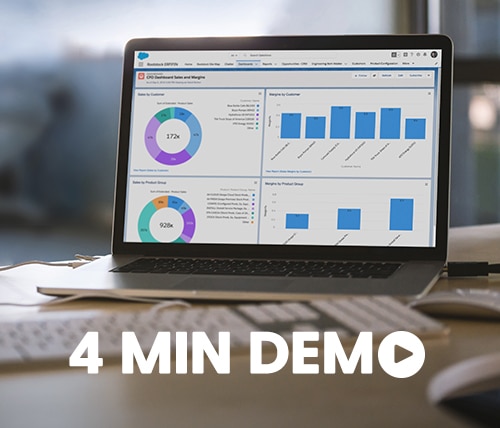Many of us are already familiar with the cloud but may not know it. We store our emails and photos online, and we access online music and video on our cell phones and home computers. However, the cloud has been a significant game changer for manufacturing, distribution and supply chain enterprises, leading them to improved efficiency and productivity, reduced costs, technology innovation and growth.
The Cloud
Cloud computing lets you store and access data and software applications on the Internet instead of your own computer hard drive or a big server in your company’s building. Data is actually stored and managed on remote servers, and end users run web-based applications that use those computing resources. Both the remote servers and the entire process is what we call “the cloud.”
Cloud ERP
The cloud provides the technology foundation for cloud ERP. The Rootstock Cloud ERP solution helps small and medium-sized manufacturers, distributors and supply chains compete with larger firms and move into different markets, and it frees larger firms from their expensive legacy on-premise ERP systems.

Comparing Key Characteristics of ERP Systems
After completing a detailed study of ERP system characteristics as defined by NIST, Frank Scavo, President of Computer Economics, compared Hosted and Cloud ERP:
| The Cloud | Cloud ERP Solutions |
| Reduced Costs Data and applications are stored and managed on remotely managed servers. There is no need to buy and maintain hardware, databases and the associated stack of software required to operate your ERP system. All of this is provided as a service, like electricity. |
Enjoy faster ROI Rapid implementation; reduced capital expenditures; lower IT overhead, including infrastructure, maintenance and lifecycle costs; and an end to time-consuming, costly upgrades help you quickly realize your return on investment. |
| Centralized Data Storage The cloud is ideal for storing and managing large amounts of data. |
Turn data into actionable business intelligence Data generated by both people and machines doesn’t have to be stored and accessed manually from multiple locations and in different formats any longer. Everything from engineering plans and bills of materials to customer and sales data can be stored in the cloud and accessed by the different departments of your enterprise. |
| Scalability Through resource pooling and multitenancy, the cloud delivers more or less computing power, storage and network bandwidth to match business requirements. |
Adapt to changing customer demands Dynamic markets, shrinking demand, projected growth - cloud ERP solutions give you the flexibility to scale up or down as needed, and pay only for those computing resources that you use. |
| On-Demand Real-Time Access Cloud-based software and data is accessible in real time from any location with an internet connection. |
Make on-the-fly business decisions anywhere, anytime All along your supply chain, workers in every department can react instantly to resolve issues, enter data more quickly and accurately, fill orders faster and manage inventory more efficiently. Add social collaboration to the mix and your entire enterprise can coordinate work in real time across the globe. |
| Automation The high speed of data and application access in the cloud allows streamlined and repeatable business processes. |
Increase efficiency, productivity and agility A Cloud ERP solution simplifies workflows and integrates disconnected functions to give you visibility across your entire enterprise. Connecting your customer and sales data to your inventory, production and distribution introduces new efficiencies and improves worker productivity to help you stay lean and agile. When your system is part of a large, popular cloud platform like Salesforce, you can expand your cloud-based ERP solution with additional software that integrates with your cloud-based ERP out of the box. |
| Innovation The cloud continues to drive new technology, such as smart machines and advanced analytics. |
Create new business models and attract new customers Mobile technology is everywhere, but your future may also include the Internet of Things, wearable technology, innovative new ways of looking at critical business data, and even new after-sales business models. A Cloud ERP solution makes all of these innovations possible. |
| Security The cloud is protected by secure data centers with strict access control, redundant systems, continual monitoring and advanced privacy protection. |
Adhere to tough security protocols to keep your data safe with no costly downtime Nothing is more important than keeping your data secure. Between the advanced security of the cloud and your active participation in creating and enforcing security protocols in your enterprise, cloud ERP ensures that your critical data is always safe. |
Hosted ERP vs. Cloud ERP
Be careful when evaluating cloud solutions; many legacy ERP vendors simply host their software in the cloud and rebrand it as Cloud ERP. This practice is called “cloud washing.” Hosted solutions rebranded as cloud solutions are more expensive, inefficient, and not nearly as scalable as real cloud ERP solutions.
For more information on how to tell the difference between true Cloud ERP and hosted ERP solutions, see The Difference Between Cloud and Hosted ERP.
“Whether cloud or hosted ERP, buyers need to conduct due diligence
to ensure that prospective vendors meet their needs.”
Frank Scavo, President, Computer Economics

